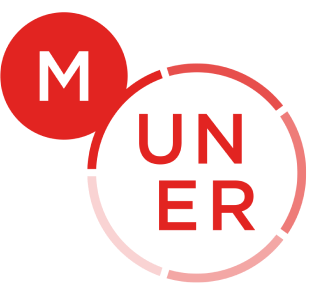Design of Off-highway Vehicles - exploring the New Generation of off-highway vehicles for future sustainability
Summer School in Off-Highway Vehicle Design
MUNER is always interested in and promotes new technological solutions from the automotive industry to meet the challenges of climate change. Off-highway vehicles are key to achieving the EU’s Sustainable Development Goals for reducing the fossil fuel burden of agriculture.
To this end, the Summer School in Off-Highway Vehicle Design promotes activities to involve and attract new generations of experts in the off-highway vehicle industry. The school offers a complete immersion in the world of off-highway vehicles.
The initiative also offers incoming orientation activities for the Masters Courses offered by MUNER. The program is integrated with practical experiences of the history and innovation of the Italian off-highway vehicle sector, as well as local beauty and culture.
Details
On-campus residential program focused on the automotive industry, offering a variety of academic, business, and social contents.
Young students from EU countries who have obtained/are enrolled in a bachelor’s degree in engineering and STEM subjects. Applications from students in other fields (e.g., agricultural sciences, physics…) are also accepted; applications and relevant competencies will be evaluated in the interview.
1-week program, May 27 – May 31, 2024.
On site in Bologna at the Department of Agricultural and Food Sciences, in Modena both at the Department of Engineering Enzo Ferrari, and at the company CNH.
Lectures, workshops, and seminars at the three locations.
Cultural activities and social events to immerse participants in the Italian culture, Factory Tours, and meetings with experts in the field of off-highway vehicles. Hands-on experience will be provided so that participants can touch and feel these vehicles in real-life scenarios.
All activities will be held in English.
View agenda activities here
The school has a limited number of places, which varies from year to year, but it is usually around 20.
Places will be allocated on the basis of candidate assessment.
The application process consists of filling out a form and sending a CV and motivation letter. Candidates will be selected through an interview to assess their skills, motivation and language level.
The deadline for applications is March 25, 2024.
NB: REGISTRATION DEADLINE EXTENDED TO APRIL 4.
Interviews will take place during the week of April 8 – 12.
Notification of acceptance will be sent by email no later than April 16, 2024.
Payment of the fee is compulsory to complete the registration.
Young students from EU countries who have obtained/are enrolled in a bachelor’s degree in engineering and STEM subjects. Applications from students in other fields (e.g., agricultural sciences, physics…) are also accepted.
Candidates will be selected on the basis of the Scientific Committee’s final assessment of the above criteria. Selected candidates will be informed by e-mail about the registration procedure.
The email address provided will be used for all formal communication, please ensure it is active and checked frequently.
Personal data and all information provided will only be used for the purpose of evaluating candidates in accordance with the Privacy Policy.
Fee for the 2024 edition:
- € 400 /student who needs an accommodation.
- € 200 / student who does not need an accommodation.
Payment of the fee is compulsory to finalise the subscription.
The fee includes:
- Overnight stay from Sunday the 26th of May to Friday the 31st of May in an accommodation located in the centre of Bologna.
- breakfast
- All organised transfers for the activities on the agenda
- all the activities on the agenda: workshops, guided tours, conferences, etc.
Not included in the fee:
- flight/train/travel to and from Bologna
- Lunches and dinners not reported in the programme



